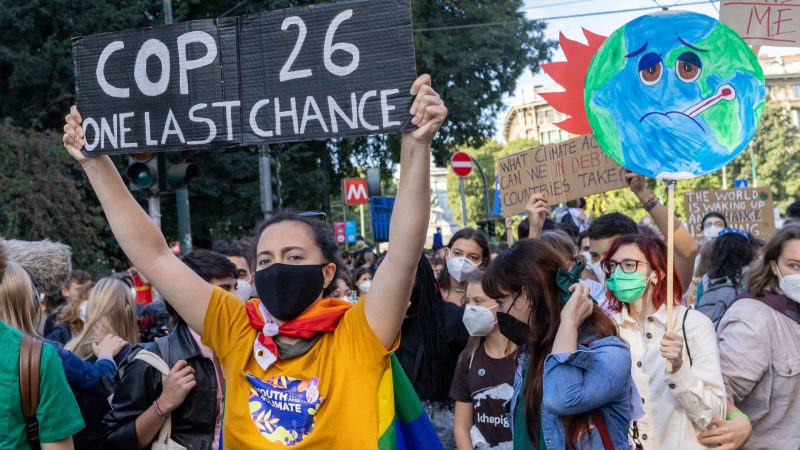
Yes! There are lots of things going wrong at COP26. And it is tempting to recite a litany of failure: £20bn a year short of the money promised to help developing countries reduce their emissions; no movement on ending coal from Australia, China and India; no clarity on Article Six (about how we get transparency and measure international emissions). But sometimes it is important to try and find the positives.
So let’s look at one of the key issues that the UK has injected into the UNFCCC process at Glasgow that has been a little more successful: nature-based solutions. Using nature to address the problems of climate change is an essential element not only of reducing our emissions but also of adapting to the impacts of climate change that are here already.
Reforesting hillsides can protect towns from flooding. Using mangroves to prevent surge swell and coastal inundation can also create nurseries for fish stocks that increase biomass providing local local protein to address food poverty. Educating farmers about better agricultural practices to avoid tillage retains more carbon in the soils.
Nature-based solutions marry together three important UN programmes: climate, biodiversity and the sustainable development goals (SDGs). This is critical because it brings together the Global South with the Developed North and with China. Delivery of the SDGs is essential to the Global South, where hunger and health dominate the political agenda. Climate mitigation is being driven by the Developed North, who are demanding more effort from each country’s nationally determined contributions (except their own!). Biodiversity is critical for China, as they are hosting their first ever United Nations Conference of the Parties for the Convention on Biological Diversity next year in Kunming. The Chinese government is determined it should be seen as a great success. So there is a triple win to seize here.
Science has told us that to keep 1.5 within reach, we need to integrate climate and biodiversity approaches and reverse biodiversity loss by 2030. In response to this, the UK has ensured that nature has received more high-level attention at COP26 than ever before. But those political commitments need to translate into ambition in the final outcome text of COP26.
The first week of COP26 was marked by several high-level political commitments raising the role of nature in helping mitigate and adapt to climate change. The Glasgow Leaders’ Declaration on Forests and Land Use, announced at the World Leaders Summit, has now been signed by over 130 signatories, and the FACT (Forest, Agriculture and Commodity Trade) Dialogue has raised both political momentum and private sector interest.
The Global Forest Finance Pledge has seen $12bn committed so far. And the role of indigenous peoples, who are the greatest conservators of land-based carbon on the planet, has been specifically boosted with a separate pledge of $1.7bn. This is of huge significance, in my view, because attempts to stop deforestation through the UN REDD+ Programme (apologies again for the COP-speak – that is Reduced Emissions from Deforestation and Degradation) have long been thwarted by the inability to establish legal title to the land. This fund is specifically to help indigenous communities fight in the courts to establish the land rights too often denied them.
These are not insignificant sums, but they are dwarfed by the $8.7tn of assets represented by the corporate sector that have now committed to removing investment in deforestation. If – and it is a big if – these companies genuinely align their entire supply chain and their finance so as to stop deforestation, this would be a major breakthrough.
But now, with the end of COP in sight, it is crunch time for finalising agreements under the formal UNFCCC process. In order to ensure that these new political commitments for nature are grounded with formal multilateral support, it is vital that nature’s role is explicitly referenced in the official COP26 cover decision. If it is in the final communiqué then that will be a huge positive achievement. I have little doubt that President of COP26, Alok Sharma, reads LabourList – let’s hope he takes note.




More from LabourList
‘The Sherriff of Wild Westminster: what must change in elections bill’
‘The hope that kills you’: Reflections from the final day in Gorton and Denton
MPs, union leaders and organisations react to ‘bruising’ Gorton and Denton result